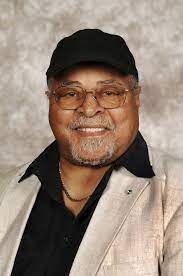We’ve just closed the book on another summer of jazz at musically-rich festivals in New England, New York, and Montreal. I remain impressed with how the annual fests at Newport, Tanglewood, Litchfield, and Burlington, Vermont continue to book lineups that are predominately jazz. It’s become increasingly common for music fests to fly under a banner of jazz but offer very little of the genuine article, while here in New England producers have found a way to maintain jazz-rich content, albeit with occasional bookings of artists from other genres.
This summer’s Tanglewood Jazz Festival was a case in point with performances by jazz stalwarts Jimmy Cobb, Mary Stallings, and stride pianist Judy Carmichael; a night of Latin Jazz in tribute to mambo pioneer Cachao; and the redoubtable Mingus Orchestra, conducted by Gunther Schuller. Tanglewood attracted an SRO crowd for its finale, Speak the Truth, with vocalists Dianne Reeves, Lizz Wright and Angelique Kidjo.
NEA Jazz Masters Schuller and Cobb made for a complementary pairing on Sunday afternoon. Since 1991, the year Miles Davis died, Cobb has been the only surviving member of the sextet that recorded Kind of Blue in 1959. Even more impressively, Schuller remains one of only two living musicians (Lee Konitz being the other) from the ensemble that Miles fronted on the Birth of the Cool sessions in 1949 and ’50.
Cobb is now 82 and swinging as elegantly as ever. He led the Coast-to-Coast Sextet at Ozawa Hall, a group featuring Peter Bernstein, gtr; Freddie Hendrix, tpt; Jaleel Shaw, alto; Doug Lawrence, tenor; Lieu Matthews, piano; and John Webber on bass. Mary Stallings joined them for “Caravan,” “Like Someone in Love,” and her ballad specialty, “Sunday Kind of Love,” but the crowd clearly would have enjoyed a few more from this seasoned veteran who sounded right at home on her first outing with this band. Bernstein was featured on his original named for MLB pitching great, “Vida Blue,” and on a tribute to Wes Montgomery, while Hendrix, whom I was seeing for the first time, was most impressive on “It Ain’t Necessarily So,” his performance recalling the classic version by the Art Farmer/Benny Golson Jazztet.
The Mingus Orchestra is one of three ensembles formed by Sue Graham Mingus to carry on the legacy of her husband, Charles Mingus, who died in 1979. The Orchestra specializes in Mingus’s through-composed works and places less emphasis on soloing. But the ten-piece ensemble that gathered at Tanglewood proved to be equally adept at playing Mingus classics of a blues and roots variety, including “Haitian Fight Song,” “Jelly Roll,” and “Meditations for Moses.” The concert concluded with “Ecclesiastes,” a Mingus original drawn from his childhood experiences in Pentecostal churches; yesterday’s performance featured stirring testimonies from tenor saxophonist Wayne Escoffery and trombonist Frank Lacy, who also preached from the King Solomon text (“To every season…”) of the book of Ecclesiastes.
Interwoven with these were “Half Mast Inhibition,” “Taurus in the Arena of Life,” “Noon Night,” and “Chill of Death.” These were among the first pieces by Mingus that captured my attention when I was a teenager, and it was a delight to hear them given fresh new readings under the baton of Schuller. Ranging in mood from stormy to serene, they reflect the wide array of orchestral influences and interests that Mingus was drawn to in his youth, and the distinction he earned as a jazz composer whose work explores the full range of human emotion. As Schuller remarked to me after the concert, “Mingus lived a full and complicated life, and he put it all in his music.”
(This is my inaugural post on WFCR’s new blog site for jazz. Look for regular features on a variety of music topics ranging from Jazz à la Mode previews, musings on what’s new, what’s evergreen, and what’s on my mind, and, alas, memorial tributes and retrospectives.)
